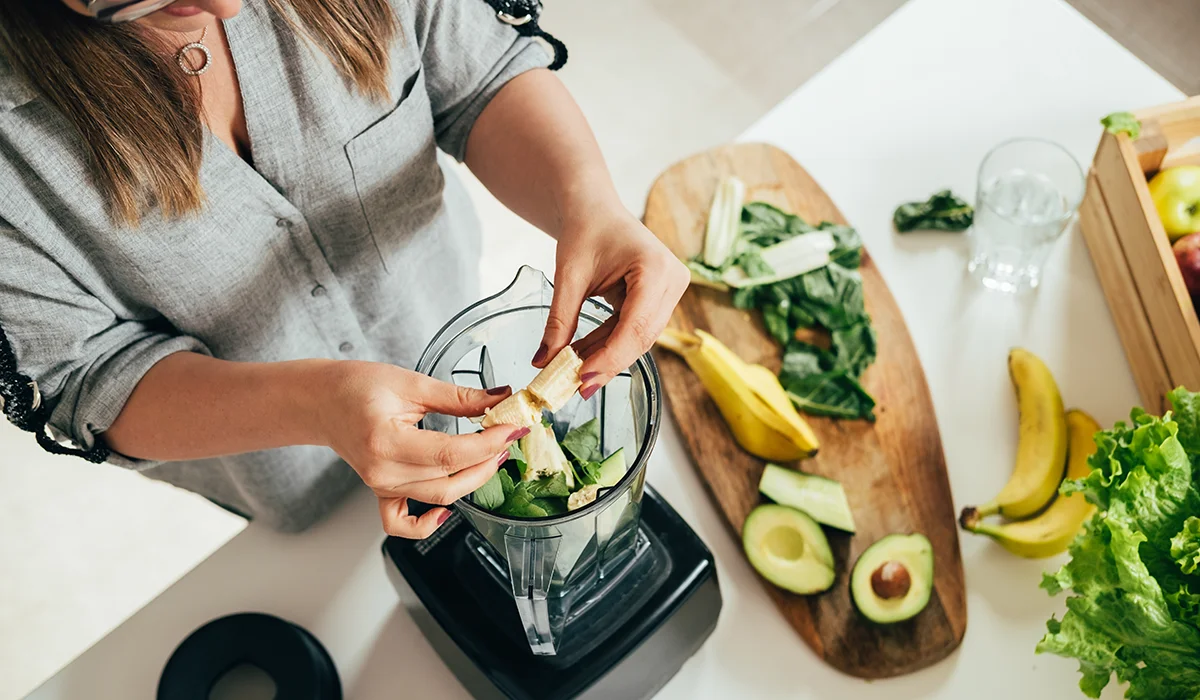Research shows the average person puts on 1-2 pounds during the holiday season. These extra pounds often stick around well after the celebrations end.
Most of us know that familiar post-holiday feeling. Our favorite jeans feel snug and our energy takes a nosedive. We feel bloated and inflamed, and our bodies cry out for a reset after weeks of rich foods, sweet treats, and celebratory drinks.
A thoughtful holiday detox offers the perfect solution. Let’s be clear though – this isn’t about extreme juice cleanses or dangerous fasting protocols. The focus stays on science-backed, gentle approaches that support your body’s natural detoxification processes to address toxic overload.
This piece will show you how to create a safe and effective detox plan that works. You’ll learn to read your body’s signals and build practical daily routines. The result? A solid strategy to bounce back from holiday indulgences while protecting your health.
Are you ready to feel like yourself again? Let’s head over to the essentials of a proper holiday reset, including some popular detox packages that can jumpstart your journey.
Understanding Post-Holiday Body Signals
Your body sends post-holiday signals that we shouldn’t ignore. These signs tell us a lot about how our system needs to reset after the festivities.
Common Physical Symptoms After Holiday Indulgence
The body sends clear distress signals after holiday celebrations. Research shows people experience several physical symptoms:
- Persistent fatigue and sluggishness [1]
- Digestive issues like bloating and gas [2]
- Acid reflux and heartburn [2]
- Changes in appetite and weight fluctuations
- Water retention and bloating [3]
These symptoms show up because our natural detoxification system gets overwhelmed. The kidneys, liver, and digestive system struggle to process all the extra food and drinks [3].
Mental and Emotional Effects
Holiday indulgence does more than just make you feel uncomfortable physically. Studies reveal 38% of adults feel more stressed during the holiday season [4]. The American Institute of Stress points out that this extra stress releases more adrenaline and cortisol, which can lead to various health issues [5].
Many people go through what doctors call “post-holiday syndrome.” This brings feelings of sadness, low energy, and lack of motivation [6]. The National Alliance on Mental Illness reports some eye-opening numbers: 24% of adults with diagnosed mental illness feel much worse during holidays, and another 40% notice their condition getting somewhat worse [7].
When to Start Your Detox Experience
Don’t pick a random date to start your post-holiday detox. Listen to your body’s signals instead. Research shows that skipping meals or trying extreme measures right after holidays can backfire. Your body might go into starvation mode and store more calories [6].
Take it slow instead of rushing into a detox program. Support your body’s natural detoxification process. Your organs – kidneys, liver, skin, and lungs – work as a team to remove toxins through different pathways [8]. Start gradually and give your body the support it needs to work at its best.
Creating Your Science-Based Detox Plan
A science-based approach to your post-holiday detox can work and last long-term. Your body responds uniquely to holiday indulgences, which makes an individual-specific approach vital to success.
Assessing Your Individual Needs
Your specific situation needs assessment before starting any detox plan. Studies show that detoxification varies from person to person, with success rates depending on personal factors [9]. These key areas need assessment:
- Current physical symptoms and their severity
- Recent dietary habits and alcohol consumption
- Existing medical conditions or medications
- Current stress levels and sleep quality
- Available time and resources for detox
Setting Realistic Goals and Timeframes
The SMART framework increases success rates by a lot according to research [10]. Your holiday detox plan should follow this structure:
- Specific: Define clear, concrete goals (e.g., “I will eliminate processed foods for 14 days”)
- Measurable: Track progress through tangible metrics
- Achievable: Set realistic targets based on your lifestyle
- Relevant: Ensure goals align with your health needs
- Time-bound: Create a reasonable timeline for your detox
Research shows optimal results from detoxification programs typically need 10-30 days [11], though individual experiences may vary.
Safety Considerations and Contraindications
Safety should be your top priority in any detox program. Medical supervision becomes vital for certain types of detox, especially those with alcohol or specific medications [9].
People with serious medical conditions, including diabetes, hypertension, or heart problems, need special attention when planning a detox [9]. Research shows that extreme detox methods can lead to:
- Dehydration and electrolyte imbalances [12]
- Nutritional deficiencies if not properly planned [13]
- Increased stress on vital organs [12]
Gentle detoxification methods support your body’s natural processes best. Successful detox programs combine proper hydration, nutrient-dense foods, and natural detoxification support methods [13].
Note that the goal isn’t punishment for holiday indulgences but a thoughtful and safe body reset. By doing this evidence-based approach, your detox plan can work and last.
Essential Components of a Safe and Effective Detox
Science-based approaches work best, so let’s look at the key elements that make our post-holiday detox safe and effective. Your body naturally detoxifies itself quite well. Our job is to support these natural processes.
Hydration and Electrolyte Balance
Proper hydration is the life-blood of any effective holiday detox plan. Research shows that adults should consume 91-125 fluid ounces of water daily [14]. Your body’s natural detoxification happens through three significant steps: bioactivation, conjugation, and elimination [14].
These tips will help you stay hydrated during detox:
- Start your day with warm lemon water or apple cider vinegar
- Carry a reusable water bottle
- Set hydration reminders
- Add natural electrolytes through sea salt and citrus
Nutrient-Dense Foods vs. Extreme Restrictions
Extreme restrictions aren’t necessary to detox effectively. These powerful detox-supporting foods will help:
- Cruciferous vegetables (broccoli, cauliflower, Brussels sprouts) rich in sulforaphane that boost liver enzymes [15]
- Dark leafy greens containing chlorophyll for improved toxin excretion [15]
- Citrus fruits high in vitamin C and flavonoids [15]
- Fermented foods that support gut health and microbiome diversity [16]
- Sulfur-rich foods like garlic and onions that boost glutathione production [15]
- Turmeric, known for its anti-inflammatory properties
- High-fiber foods to support digestive detox
Consider incorporating a green juice blend into your daily routine for an extra nutrient boost.
Natural Detoxification Support Methods
Supporting your body’s natural detoxification systems doesn’t need extreme measures. Studies show that your liver, kidneys, digestive tract, lungs, skin, and lymphatic system work together to remove toxins [15].
These methods support natural processes:
Physical Activity: Regular movement stimulates lymphatic drainage and promotes natural detoxification through sweating [17]. Consistent physical activity, including fasted cardio, can be particularly effective.
Quality Sleep: Seven to eight hours of sleep helps your body repair and reset [17].
Mindful Eating: Slow and intentional eating improves digestion and nutrient absorption [17].
Liver Support: Consider incorporating milk thistle, known for its liver-protective properties, to support liver detoxification and liver cleanse processes.
Skin Detoxification: Exfoliate regularly to support your skin’s natural detoxification process.
Sauna Sessions: Regular sauna use can help eliminate toxins through sweat.
Note that we don’t need to force detoxification. Your body has incredible natural abilities. These essential components create an environment where internal systems function at their best, helping you bounce back from holiday indulgences naturally and safely.
Implementing Your Daily Detox Routine
A well-laid-out approach to daily routines helps you bounce back after the holidays. Our bodies naturally reset and recover from seasonal indulgences when we stick to consistent practices. Here’s how you can build a daily detox routine that fits naturally into your life.
Morning Rituals for Optimal Results
The way you start your morning can affect your gut health and overall well-being [18]. These science-backed practices will help you start each day right:
- Warm lemon water upon waking (helps digestion and supports pH balance) [18]
- 10-15 minutes of gentle movement or stretching
- Probiotic supplementation before breakfast to support probiotic bacteria growth [18]
- Deep breathing exercises to reduce stress
- Oil pulling to support oral health [18]
Your body’s natural detoxification processes work better when you wake up at the same time every day, even on weekends [19].
Balanced Meal Planning Guidelines
A successful post-holiday detox needs thoughtful meal planning. Your body responds best to whole, unprocessed foods during recovery [20]. Here’s a daily framework we suggest for your holiday detox meal plan:
| Meal Timing | Focus Areas | Key Components |
| Breakfast | Gentle Start | Smoothies or easily digestible proteins |
| Lunch | Peak Nutrition | Complex carbs, lean proteins, vegetables |
| Dinner | Light & Early | Plant-based options, minimal processing |
Drink half your body weight in ounces of water daily [20]. You might want to consider intermediate fasting if it matches your health goals [6].
Evening Practices for Recovery
Your body’s natural detoxification processes work best in the evening hours. Quality sleep plays a vital role in cellular repair and toxin elimination [6].
Eight hours of consistent sleep each night helps fine-tune our internal clock and maximizes rest and repair [19]. A calming pre-bedtime routine should include:
- Setting a consistent bedtime
- Avoiding screens 1-2 hours before sleep
- Light stretching or gentle yoga
- Herbal tea consumption, such as ginger tea
- Mindful reflection or journaling
Note that you should make these changes gradually. Small, eco-friendly lifestyle changes work better than dramatic overhauls [21]. This process works best when you see it as a path of self-discovery rather than a strict regimen.
Monitoring Progress and Adjusting
Your body shows both subtle and obvious changes at the time you monitor your post-holiday detox experience. A systematic approach to tracking progress helps you stay safe and lets you make adjustments as needed.
Tracking Physical and Mental Changes
A detailed approach works best to monitor detox progress. Research shows that detoxification affects both physical and emotional well-being [22]. Our experience points to these indicators:
| Aspect to Monitor | What to Look For | Frequency |
| Physical Changes | Energy levels, sleep quality, digestion | Daily |
| Mental State | Mood, clarity, stress levels | Daily |
| Body Signals | Weight, bloating, skin condition | Weekly |
Studies show emotional and psychological changes matter just as much as physical ones during detox [22]. A daily journal helps you track:
- Mood fluctuations and emotional triggers
- Energy level patterns
- Sleep quality and duration
- Physical comfort levels
Common Detox Symptoms and Management
Your body adjusts during post-holiday detox, and several symptoms might show up. Research points to common detox symptoms that include:
About 65% of people experience fatigue and sleep disruption during detox [23]. These symptoms usually peak within the first 24-72 hours [24]. You might also notice:
- Digestive changes and bloating [23]
- Headaches with neck tension [23]
- Mood fluctuations and temporary anxiety [25]
- Muscle aches and joint discomfort [23]
Management Strategies: Good hydration helps because dehydration often occurs during detox [23]. It also helps to eat nutrient-dense foods that stabilize your mood and sharpen your thinking [22].
When to Modify Your Approach
A flexible approach leads to successful detox. Studies show that adjusting strategies based on how you progress helps overcome challenges [26]. You should adjust your approach when:
- Distressing symptoms don’t go away [23]
- Energy levels stay low
- Sleep patterns get very disrupted
- Your emotional balance takes a big hit
Important Safety Considerations: You need medical supervision if symptoms become severe [27]. Get professional help when:
- Withdrawal symptoms intensify [28]
- Physical discomfort lasts longer than expected
- Your emotional stability suffers greatly
- Sleep patterns stay severely disrupted
Note that successful detox needs regular plan evaluation and adjustments [26]. Talk openly with your healthcare providers and keep detailed records to make your post-holiday detox safe and effective.
Do You Need Help?
You don’t need extreme measures or strict protocols for a post-holiday detox. Our bodies are amazing at natural detoxification – we just need to support these processes through mindful choices and green practices.
Research shows that successful detox combines proper hydration, nutrient-dense foods and consistent daily routines. Your body’s responses help you adjust the approach to ensure both safety and effectiveness throughout the process.
Note that holiday weight gain and indulgences don’t define your health trip. Small, consistent steps toward better habits create lasting positive changes. Thoughtful planning, careful monitoring and respect for our body’s natural processes help us reset our health and vitality after the holiday season.
Your body’s signals matter most, so adjust your detox plan when needed. The post-holiday recovery should feel supportive and rejuvenating rather than restrictive or punishing. A commitment to health goals while keeping balance will leave you feeling refreshed and energized as you move forward.
References
[1] – https://www.joelnathanmd.com/blog/learn-what-happens-during-a-detox-evaluation/
[2] – https://my.clevelandclinic.org/health/diseases/24680-overeating
[3] – https://www.oliocarli.us/magazine/styles-and-trends/post-holiday-diet?srsltid=AfmBOooh7LCZLH0PjUoAC20yN0ILj1W7IkzVwcKgISCSFlQZ_IBHA-YZ [4] – https://www.mdanderson.org/cancerwise/how-to-feel-better-after-overeating-during-the-holidays.h00-159623379.html
[5] – https://www.batistaweightloss.com/5-signs-that-your-body-needs-a-detox/
[6] – https://betterme.world/articles/after-holiday-detox/
[7] – https://newlife360inc.com/blog/holiday-depression
[8] – https://www.northstarbehavioralhealthmn.com/resources/what-are-the-signs-that-my-body-is-detoxing
[9] – https://everlastrecovery.com/drug-detox-checklist/
[10] – https://www.ashleytreatment.org/rehab-blog/setting-smart-goals-in-recovery/
[11] – https://precisionlife.io/blog/fitness-st-louis/nutritions-fail-proof-post-holiday-detox-plan/
[12] – https://www.ncbi.nlm.nih.gov/books/NBK64119/
[13] – https://www.huffpost.com/archive/ca/entry/science-holiday-detox_b_13448610
[14] – https://blog.standardprocess.com/hydration-on-a-detox
[15] – https://drcindyjakubiec.com/the-10-best-foods-for-detox-recipes-for-each/
[16] – https://www.realsimple.com/how-to-detox-your-body-naturally-8422021
[17] – https://www.prospectmedical.com/resources/wellness-center/post-holiday-cleanse-reset
[18] – https://nikkiyeltonrd.com/how-to-create-a-blissful-morning-routine-to-boost-gut-health/
[19] – https://www.racnj.com/routines-that-promote-sobriety/
[20] – https://gf-veg.com/detox-meal-plan/
[21] – https://joinmonument.com/resources/healthy-routine-in-recovery/
[22] – https://wp.nyu.edu/mind/2024/09/18/understanding-emotional-triggers-in-detox/
[23] – https://www.fammed.wisc.edu/files/webfm-uploads/documents/outreach/im/handout_detoxplan.pdf
[24] – https://www.alpinerecoverylodge.com/5-signs-your-body-is-detoxing/
[25] – https://www.healthdirect.gov.au/addiction-withdrawal-symptoms
[26] – https://www.refreshrecoverycenters.com/top-strategies-for-a-strong-alcohol-detox-plan/
[27] – https://willardohiodetox.com/addiction/why-a-customized-detox-plan-is-essential/
[28] – https://www.ardurecoverycenter.com/what-are-signs-your-body-is-detoxing/




